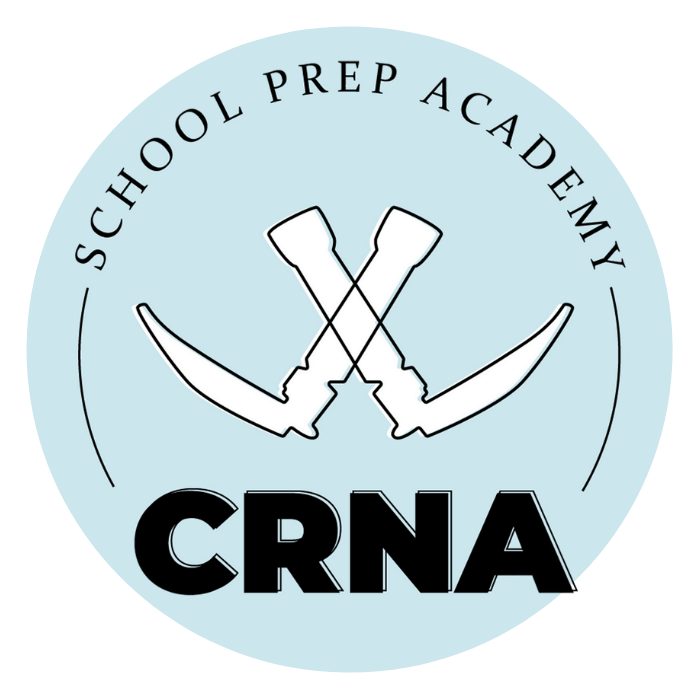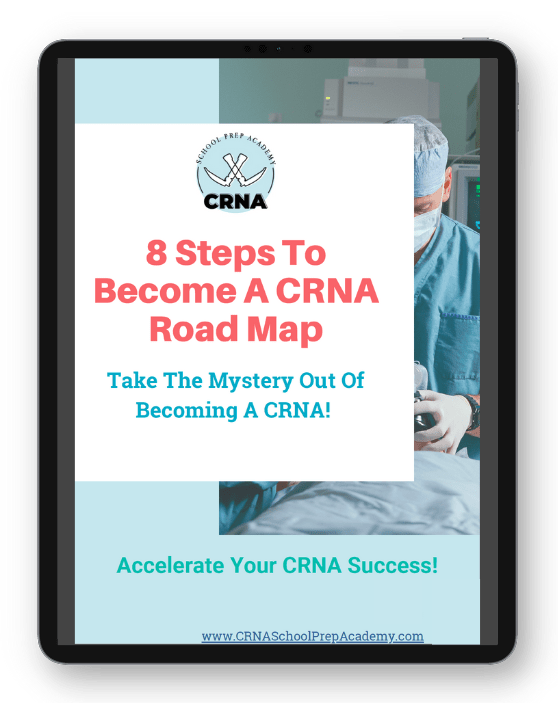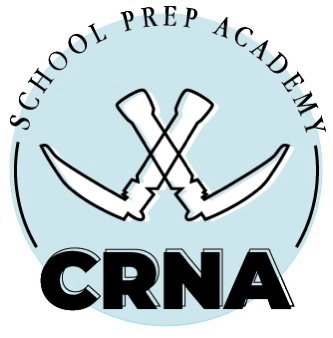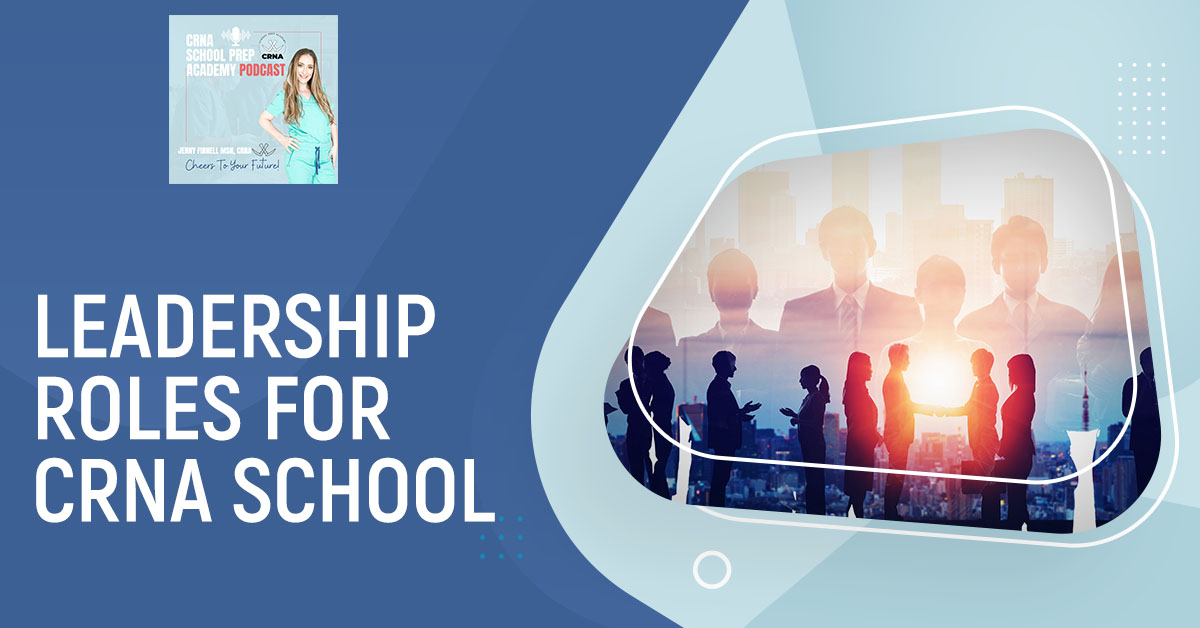
Volunteer work and getting involved in the community develop your leadership skills. It’s not required but it will help you greatly in your journey to CRNA school. Don’t be afraid to go to conferences and mingle. Start volunteering at youth groups at your church or honor societies near you. Do whatever it takes to enhance your resume. Join Jenny Finnell as she shares why you need to start developing your leadership skills right now. Find a hobby or something you love doing and give back to the community. CRNA school is all about leadership, so you really need to get as much experience as you can.
Grab your conference ticket now! Sales End Friday, August 5th!! www.Events.CRNASchoolPrepAcademy.com
Join CSPA for a discount on your conference ticket and start utilizing all the resources that will help you GAIN ACCEPTANCE into CRNA School! www.CRNASchoolPrepAcademy.com/Join
Book a mock interview, personal statement critique, resume review and more at https://www.TeachRN.com
Join the CSPA email list: https://www.cspaedu.com/podcast-email
Send Jenny an email or make a podcast request!
Hello@CRNASchoolPrepAcademy.com
Book reference:
Emotional Intelligence 2.0 by Travis Bradberry and Jean Greaves
—
Watch the episode here
Listen to the podcast here
Leadership Roles For CRNA School
Welcome back to our next episode of the show. I’m excited to have you back. I appreciate you. Thank you so much. In this episode, we’re going to talk about leadership roles, applying to CRNA school, and what kind of leadership roles work for CRNA school. I hear a lot of people question whether they have good enough leadership skills, whether they have the right leadership experience, or what are the type of things they should be doing to get that experience. I would love to share some insights into what it looks like to apply to CRNA school with leadership experience, and some of the different ways you can go about getting that.
First and foremost, I want to debunk a myth that I hear often. I have students come to me that are concerned that they don’t have good enough volunteer experience, for example. One way to gain leadership experience is by having volunteer experience. They think they need to have a mission trip or do something big with the Red Cross or have something medical-related. They feel like they need that to be competitive, and it’s simply not true. Volunteer work, in general, as long as you’re passionate about it and as long as you are actively involved in doing whatever this volunteer work is, is great experience for leadership roles for CRNA school. It does not have to be mission trips. It doesn’t have to be medical-related.
I ran into a student at NTI in Houston a couple of months ago. She was concerned because she had volunteer experience but she said it was non-traditional and she didn’t have medical volunteer experience. She is a very avid gardener and she donates that food to the local food bank. I think that’s amazing. I told her to be proud of that because she is doing two things. She’s doing a hobby that she enjoys and is a stress relief for her. Something that brings her joy and happiness is gardening. She’s taking that strength and that skill, and she’s giving back to the community by donating food.
I think that’s an amazing thing to do as a volunteer activity. She’s donating her time to grow a garden and grow food for people who can’t afford food. It can be something simple like that. If she’s asked about her community work as far as donating food to a food shelter, she would speak very passionately about that because she’s an avid gardener. She’s using a skillset that she’s very passionate about and good at. That would speak very highly of her and come across well to an interview panel.

Pick Something You Enjoy Doing
What I want to caution you about is to not pick something just because you think it’s what they want to see. You should pick something that you would enjoy doing, so when you’re asked about it, you can smile from ear to ear and talk about it in a way that shows, “They picked that activity because it speaks to their soul and what they want to contribute to society.”
Your volunteer work does not have to be medical-related. It can be anything that you’re passionate about that you would feel enthusiastic to talk about if you were asked. The Red Cross is good. Mission trips are also equally as good if you’re passionate about that type of thing and if you want to do that type of thing. Other suggestions are things like volunteering at a library or an elementary school. Those are all acceptable ways to get your volunteer experience that will add to your leadership roles within your community.
Other ways are things like a nursing student association or an honor society. There is one thing I want to caution you though because I’ve had a lot of students reach out to me saying they got offered to join this honor society. The question was, would it be a resume booster? I do know all those things cost money. They’re like, “Congratulations. You got accepted into this, but pay me $50 so you can be part of our association.” I’m not poo-pooing it. I just want to be upfront and honest with how I feel about that because it’s going to cost you money and resources to be a part of it.
Honor Societies
If you’re going to accept that honor society and you’re going to pay to be a part of that membership, use it. Don’t think you’re going to join it and not volunteer or commit or do any committee work, unit projects or whatever you do within those societies with them. It’s the same thing. You’re adding it to your resume, but you didn’t do any community work with it. You didn’t give back to society. You didn’t gain any leadership skills from it. It’s not that valuable unless you plan on using it.
Do you need volunteer work experience in order to apply for CRNA school? No, you don't. You just need to be passionate about it. Click To TweetI’ll give you an example of something I did. Our son just started kindergarten. I’m like, “I’m going to be that mom I always dreamed about. I’m going to join PTO. I’m going to go to the school activities. I’m going to be involved.” As a child growing up, both my parents worked 50 to 60 hours a week. I love them. I’m not poo-pooing that at all, but I remember always feeling envious of the students who had their parents at school on occasions like field trips and things like that.
I was like, “I’m going to be a PTO mom,” but here I am running a business and working as a CRNA. I have three little kids. Let’s say I didn’t do a thing. I didn’t even read half the PTO emails that came to me. I never went to a single meeting. I didn’t have the time. I didn’t make it a priority to do the PTO mom thing even though I desired to do it. With that being said, if I had to put that on my resume and they said, “I see you’re on the PTO committee at your child’s school. Tell me about that,” there would be crickets because I didn’t do a single thing. That’s what I mean as far as if you’re going to join something, it only will beef up your resume if you can speak to it as far as what your involvement was being on that committee.
The nursing student association is a great way, but make sure you’re involved and you’re doing things to get involved in the association, so you can speak to it. There are so many times when I was reviewing someone’s resume that I would see something and I wouldn’t quite understand what it was all about. When I asked the candidate about it, I’m like, “It’s amazing. I wish I would have gathered more from your resume.” You don’t have to go into a big long paragraph. Why did you get these awards? What did you do on this? What enrichment did you get from this committee? List the specific committee that you were on, not just the unit leadership committee. “I took charge of this unit project in the leadership committee,” that’s more detailed. That’s more like, “They did something on this committee versus just joining it.”
In my PTO experience, I didn’t do anything even though I was technically on the list. Make sure when you’re joining associations that you’re doing something. It doesn’t have to be tons of time. It doesn’t have to be anything massive. It just has to be something. Do what feels good and manageable for you. As far as the time commitment, be realistic with your time. I’m not realistic with my time, so I’m preaching to the choir here.

Pick an activity that you feel like you can maintain, which is why I love the gardening example. That’s something that she loves to do. She’s passionate about showing up in her garden and doing it, yet she still found a way to give back by using skill and a hobby that she enjoys. For me, I’m spending my evening or my afternoon going to something, then have PTO in the early morning, going to PTO when I’m trying to drop off my kids at school, then I have to go home and check emails, and start running the business. It felt like, “I’m going to feel more rushed to get this done.” I picked an activity that wasn’t necessarily in line with giving back to myself. It wasn’t fulfilling my cup, where the gardening is filling her cup and she is giving back. That’s why I liked that example because I felt like that was a great way to take care of yourself and give back at the same time.
Be realistic. If you pick an activity that’s going to be harder for you to contribute to, then I would suggest trying to look elsewhere for leadership roles and experience with volunteer and committee work. Other great options are things like church youth groups or camps and giving back in that way. If that’s something that you’ve been involved in for a very long time, that is a great avenue to take to get more involved in the community. This is about community. Getting involved in the community and giving back is developing leadership skills because you’re giving some of your skill sets to the community at large. Doing that is a form of leadership.
The AACN and CRNA Conferences
Another one is the AACN. I don’t know why more people don’t have this on their resumes. They usually have their CCRN, but I don’t find or have come across many that have any committee work or volunteer work through the AACN. If you go to their website, there are tons of options to volunteer and do different things through the AACN. If you’re a part of the AACN, CCRN, or other certifications, what better way to promote the education that you received through them? It’s a great option for people to get involved in the AACN.
Another one is conferences. Don’t get me wrong. You don’t need to go to a million conferences a year. You don’t even have to go to more than one conference a year. I do think whether you’re picking an AACN conference, a conference like CRNA School Prep Academy, diversity, a state PAC association conference, or even an Annual Congress through the AANA, try to aim for one conference a year. That’s a realistic goal.
Getting involved in the community develops leadership skills. You're essentially giving your skillset to the community at large. Click To TweetYou don’t have to hit 2 or 3 conferences in a year because I get it, it’s expensive to go to conferences. It’s also time-consuming if you have to travel to go. Getting involved in conferences not only is a great way to display your involvement in the community, aka leadership, but it is also a great way to network and connect with people.
If you have several years before CRNA School’s application comes around, you should be seeking out at least one conference a year at a minimum to go to. The maximum is two. Two a year is plenty. I don’t think you need to go overboard with three. For sure, once a year would be very enriching for you. It would allow you to connect and network; CSPA’s conference is on August 6th and 7th. I hope to see you there. We’re going to have lots of schools there.
We’re going to have students there to network. If you haven’t been through a Hopin event, it’s very different from Zoom. They have a whole network area, which is a separate private interface or Zoom room where it’s not a group setting. You enter the network area and then whoever is floating around in cyberspace in the network area will then automatically connect with you via one-on-one communication. We’re going to have students from different programs be available in this network area to connect with you so you can ask questions and connect with students. That’s a great way to not feel you’re in the hot seat with a program faculty. It’s more like, “This is my peer here that I’m talking to.”
I get it. Talking to program faculty can be intimidating, so I want to make sure we’re providing you with actual students to talk to as well. I can’t stress conferences enough. Also, people don’t realize that they can go to certain state association conferences. You just have to email and ask. You have to sign up as a non-ANA member or a non-PAC member. You paid the dues, then you get to go. It could seem intimidating and scary, but I have run into some students at conferences and it serves them so well. The faculty members who recognize that you are going to these conferences without even being a part of the association says a lot about you, and your involvement and commitment to this community without even being in it yet. I can’t say it enough. It’s a great way to network and meet people.
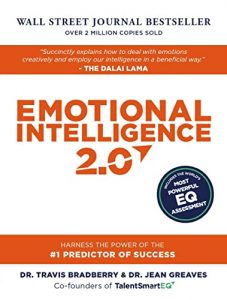
People are going to want to support you. The more people you have in your corner to support you, the more empowered you’re going to feel to embark on this journey. That is why I am so passionate about connecting you to the community because I know that’s rocket fuel to your success. That’s what I want for you. I want you to have rocket fuel for your success. I want you to feel supported, heard and seen. I want you to feel like you have answers to your questions. I don’t ever want you to feel like you’re in the dark. Tuning into the show and being part of CSPA is a great way to get that support that you need, so you don’t ever feel stuck. You always feel like you have a way to move forward.
The last way is untraditional. I do think if you put it under your enrichment activities on your resume, reading things about emotional intelligence is a great way to show them that you are cognizant that this is a very important part of development as a person. We all have room for improvement in our emotional intelligence. It doesn’t matter how old you are or how young you are, we all have something to learn here.
Enrichment Activities
Enrich yourself by reading books such as Emotional Intelligence 2.0 by Travis Bradberry and Jean Greaves. It is a great book. I could give you tons of resources on emotional intelligence and mindset because I am passionate about that. I have had to utilize it quite a bit to help me, believe it or not. You think, “Jenny is so peppy. Jenny is so positive,” but I am that way because I try to be that way. I have to work on that. That’s a work in progress for me.
I wouldn’t say I’ve ever been a negative person, but I beat myself up in my head quietly without anyone knowing. That has been something that I have had to struggle with. That has been something that I have had to fight. I would call it one of my demons where I suffer from insecurity, confidence or impostor syndrome. I suffer from that and here I am trying to guide you and lead you. At the same time, I’m thinking, “Who am I? What am I doing?” I’ve had to work on quieting that voice. A lot of that stems from not only emotional intelligence and recognizing where you are in that journey but also the mindset.
Enrichment activities are a sign of leadership because all leaders will try to enrich themselves. Sometimes, it is an investment to enrich yourself. Don’t be afraid to listen to audiobooks, read books, go to conferences, network, and learn from others who can only help you. Take away some golden nuggets from their journey or from their experience and how they’ve gotten where they are.
If I look back to where I was and how I got where I am now, I have stolen all my stuff. In reality, I learn from other people. I take what I enjoy and I apply it to my life. I enjoy that. It’s rewarding to develop relationships that are mutual where I give back, but I also get so much from you. I get so much from the CSPA community. You guys are the fuel to my fire. My desire to keep going is because of you. You inspire me.
All these stories I hear from you, your success stories, struggles, wins and all of it, I’m here for it and I love it. When I’m having a bad day or have a day where I beat myself up, I think about you and your success stories. I think about you and your struggles. All of our students in the CSPA have their struggles and yet, they’re persisting. They’re determined. They’re going to persevere, and I’m going to also. I don’t know about you, but I enjoy that part of the community. It’s the accountability piece. You know how it is when you want to stick to something, but if it’s only on you, you’re like, “I’m not going to do it.” If you have someone else who’s rooting you on and saying, “You can push yourself. Keep going. Don’t stop,” you’re like, “You’re right. I can.”
That’s what I feel like connecting at conferences and networking within the community can do for you. If you’re not a part of CSPA, I highly encourage you to do that. If you’re not planning on coming to the conference, I highly encourage you to reconsider that. It’s on August 6th and 7th, 2022. I’m excited to see you guys there. I hope you guys all have a beautiful rest of your day. Thank you so much. I kept this episode short and sweet, but I hope this helps you as far as getting that leadership experience for your CRNA application. I will see you next time.
Important Links
Get access to planning tools, valuable CRNA Faculty guidance & mapped out courses that have been proven to accelerate your CRNA success! Become a member of CRNA School Prep Academy here:
https://www.crnaschoolprepacademy.com/join
Book a mock interview, personal statement critique, resume review and more at https://www.TeachRN.com
Join the CSPA email list: https://www.cspaedu.com/podcast-email
Send Jenny an email or make a podcast request!
